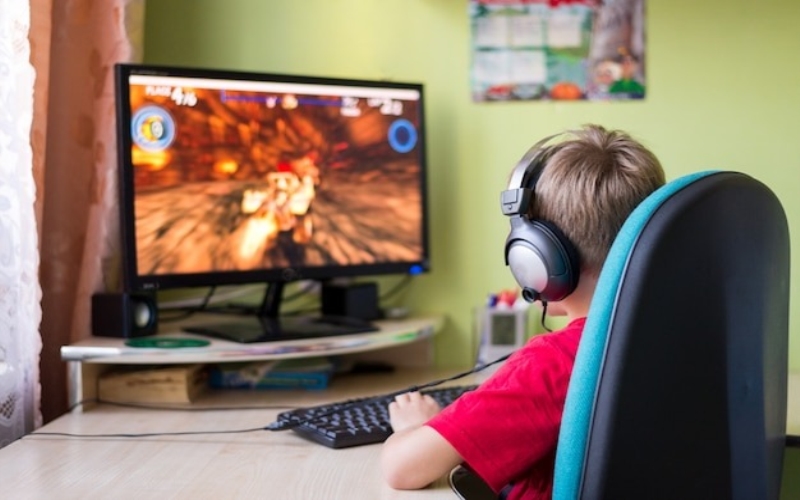Online games have shed their reputation as mere distractions. Today, they offer a surprisingly potent platform for learning and personal growth. From acquiring new skills to fostering social connections and even boosting cognitive abilities, online games hold the potential to “level up” our lives in unexpected ways. Let’s delve into the educational and developmental power of slot gacor online games, exploring how virtual worlds can become springboards for real-world learning and personal growth.
Beyond Entertainment: Unveiling the Educational Potential of Online Games
Games offer a unique blend of entertainment and education:
- Engaging and Interactive Learning: Games capture attention and immerse players in compelling narratives, making learning active and enjoyable. Players actively participate in the learning process, exploring virtual worlds and solving problems to progress.
- Gamification of Education: Gamification techniques, like points, badges, and leaderboards, can be integrated into educational games to motivate learners, promote healthy competition, and provide a sense of accomplishment. This approach can make traditionally dry subjects more engaging and appealing.
- Personalization and Adaptive Learning: Educational games can personalize learning experiences by adapting difficulty, content, and feedback to individual player needs and learning styles. This ensures that players are constantly challenged and learning at their optimal pace.
- Developing Critical Thinking and Problem-Solving Skills: Many online games require players to think strategically, analyze situations, and make decisions under pressure, fostering critical thinking and problem-solving skills that translate well to real-world scenarios.
- Collaborative Learning and Communication: Multiplayer online games promote teamwork, communication skills, and collaboration as players work together towards shared goals. Players learn to effectively communicate, strategize, and resolve conflicts in a virtual environment, skills that can be applied in real-world social and professional settings.
Online games go beyond rote memorization by encouraging active learning and the development of valuable cognitive and social skills.
Genres for Growth: Exploring Different Educational Game Types
The diverse landscape of online games offers a variety of educational applications:
- Simulation Games: Simulation games allow players to immerse themselves in real-world scenarios, fostering an understanding of history, science, economics, or social dynamics through interactive experiences. Players can learn about complex systems and decision-making through engaging simulations.
- Language Learning Games: Language learning games make language acquisition fun and engaging, introducing vocabulary, grammar, and cultural nuances in a captivating way. Gamified learning keeps users motivated and immersed in the language acquisition process.
- Puzzle Games: Puzzle games hone problem-solving skills, logical thinking, and spatial reasoning skills through engaging challenges. They encourage players to think critically and creatively to find solutions.
- Educational AR/VR Games: Augmented reality (AR) and virtual reality (VR) games can revolutionize education by creating immersive learning experiences that blur the lines between the real and virtual worlds. Players can explore historical sites, conduct virtual experiments, or experience complex concepts firsthand.
- Social and Emotional Learning (SEL) Games: Games can be designed to promote empathy, social interaction, and emotional regulation, fostering social and emotional learning (SEL) skills. These games can help players build positive relationships, navigate social situations, and manage emotions effectively.
The type of online game chosen depends on the specific learning objectives and the desired skill development.
Case Studies: Pixels Fueling Progress
Several examples showcase the educational effectiveness of online games quiketalk:
- Minecraft Education Edition: This popular sandbox game allows players to build and explore virtual worlds, fostering creativity, problem-solving, and collaboration. Educators can utilize Minecraft to teach subjects ranging from history and architecture to engineering and coding.
- SimCity and Civilization: These strategy games immerse players in city-building and civilization management, teaching about urban planning, resource management, economics, and historical decision-making. Players learn about complex systems and the consequences of choices in a virtual environment.
- Duolingo: This language learning app uses gamified elements like streaks, points, and leaderboards to make language learning engaging and motivating. By gamifying the process, Duolingo encourages consistent practice and fosters a fun learning experience.
These examples illustrate the potential of online games to make learning interactive, enjoyable, and effective.
From Pixels to Pathways: Lifelong Learning Through Games
The potential of online games extends beyond formal education:
- Developing New Skills and Hobbies: Games can be used to learn new skills like coding, music production, or graphic design. Additionally, games can introduce players to new hobbies and interests, expanding their knowledge base and enriching their lives.
- Cognitive Fitness and Brain Training: Certain games can help maintain cognitive function and improve memory, attention, and processing speed. This can be particularly beneficial for adults looking to keep their minds sharp.
- Lifelong Learning and Adaptability: Online games cultivate a love for learning and the ability to adapt to new challenges.

